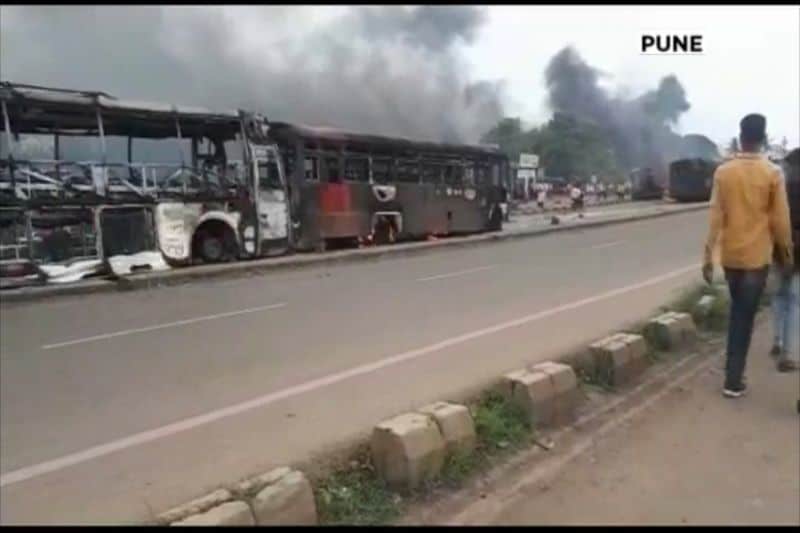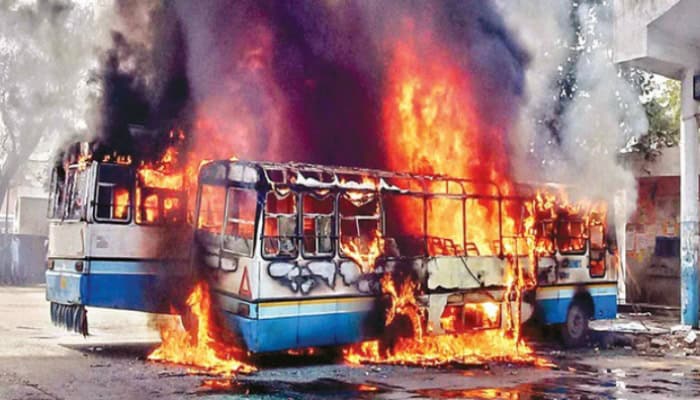As the Maratha reservation stir erupts in Maharashtra’s Pune, as over 40 vehicles were burnt leaving several commuters stranded on Monday.
section 144(prohibits assembly of more than 4 people in an area) has been imposed in Pune’s Chakan following a violent protest in the area over the Maratha reservation.
The protests for reservation in education and jobs for Marathas has once again turned violent, this time in Pune, as agitators torched at least 40 buses and damaged another 50 on Monday afternoon.
The protesters behind vandalism are suspected to be from the Maratha Kranti Morcha, the same group that led the multi-day Maharashtra-wide agitation over reservation for Marathas last week.
The buses were set on fire at the Chakan industrial area on the Pune-Nashik highway on the city’s outskirts. Police had to lob teargas shells and fire in the air to control the mob, officials said.
The sudden violence has affected traffic movement in the area and hundreds of commuters have been left stranded. Some people have taken shelter in government offices in the vicinity
To control the situation, authorities have imposed Section 144 of the Indian Penal Code in the area that prohibits assembly of more than four people. Additional forces have been rushed to the spot.

The violence comes after two men committed suicide over demands for reservation for Marathas earlier in the day. While one man hung himself to death in Nanded, the other jumped in front of a train in Aurangabad.
The violence in Pune and the two suicides come just days after a state-wide agitation was held over the demand for 16 per cent reservation in education institutes and jobs for Maratha community. The agitation was called off after incidents of violence were reported from parts of Mumbai during a bandh.
The Maratha Kranti Morcha had given the call for the bandh demanding an apology from chief minister Devendra Fadnavis for alleging that some members of the community were planning violence.
Quotas for Marathas, a politically influential community that constitutes nearly 30 per cent of the state’s population has been a very contentious issue for some time now.

